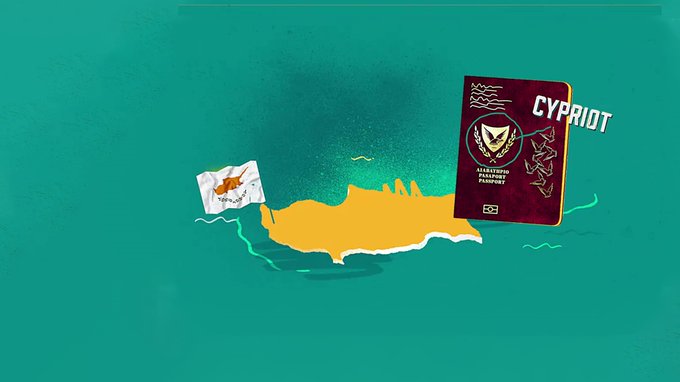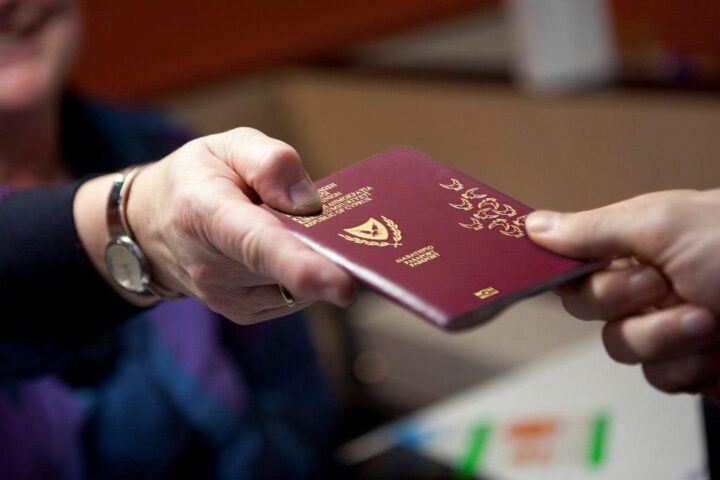Demetra Kalogirou, head of the task force reviewing high-risk cases of ‘golden passports’ that were issued to convicted investors, is seeking legal advice to see if their Cypriot citizenship can be revoked.
The task force was set up last year after the government agreed to revoke the citizenship of 26 investors from countries including Russia, Cambodia, Malaysia and Iran following accusations of wrongdoing.
Kalogirou, the chairperson of the Cyprus Securities and Exchange Commission, told the CyBC radio Tuesday that the three-person task force has reviewed the 30 cases it received ever since it was appointed in December 2019.
“There are some cases where the applications included misleading information while in some cases facts were concealed by the applicant (acting on behalf of the beneficiary).
“We have sought a legal opinion to find if stricter and transparent rules (introduced in August 2019) can have retrospective effect,” Kalogirou told CyBC Radio.
Kalogirou said that her task force has been checking against all available databases, locally and internationally, including the police, Interpol, Cyprus’ financial crimes unit Mokas and the Foreign Ministry.
She admitted there were some shortfalls in the legislation for transparency and good conduct reports which were not spotted because of differences in spelling, or because they were not applicable to the anti-money laundering regulations that apply in Cyprus.
Kalogirou’s comments follow an expose published by global media outlet Al Jazeera with incriminating evidence that Cyprus issued passports to investors with a criminal record during the years 2017-2019.
Qatar’s Al Jazeera initial report claimed that 12 dubious investors – including four Russians, two people each from Ukraine, China and Iran, and one from Venezuela and Vietnam – secured Cypriot passports after paying at least €2 mln in investments despite being under investigation for corruption and fraud
Al Jazeera is to continue daily reports based on a selection of 1,400 leaked Cyprus government documents on the Cypriot Citizenship for Investment which it claims proves that passports were “sold to dozens of foreigners linked to crime and corruption”.
The outlet will publish more ‘Cyprus Papers’ during the week.
Plot thickens
Interior Minister Nicos Nouris dismissed the allegations as part of a smear campaign, implying that Turkey was involved in an attempt to discredit Cyprus due to its close ties with the Qatari regime.
“We should ask why an organisation like Al Jazeera, which we all know to which country it belongs and we know where this country stands politically, chooses this moment in time to try to deal a blow to the Cyprus Republic.
This is a question we must all ask including those criticising the operation of the (citizenship) programme,” Nouris told Omega TV.
Al Jazeera’s expose has fired up the opposition with communist AKEL leader Andros Kyprianou delivering a scathing attack on the administration saying that it has turned a blind eye to the process of issuing golden passports for the past seven years.
Kyprianou fired at President Nicos Anastasiades’ administration saying it is trying to silence the opposition from talking about the issue.
“The naturalization program has helped the Cypriot economy in very critical and decisive moments and its abuse by the rulers has caused all these problems,” Kyprianou said.
“Now they are trying to convince us that because a new framework has been introduced,- with a seven-year delay – no one should criticize the way the whole program has been handled.”
Parliament last year, tightened procedures and eligibility criteria for the maligned “golden passport” investment programme, which has yielded over €7 bln in revenue since 2013.
The passport has attracted many Russian and Chinese investors because a Cyprus passport automatically grants its holder citizenship to the entire 27-member European Union.
Under the recent changes, new anti-money laundering rules will be used to bolster how prospective investors are vetted.
It is now easier for investors involved or convicted of a serious crime to have their Cypriot citizenship revoked.
There is also a wider choice on how investors can contribute to the Cypriot economy, including buying up stock in local companies or contributing to housing and entrepreneurship ventures.
Investors also have to pay a €150,000 application fee with the money earmarked for housing and innovation schemes.
The number of passport applications is now capped at 700 a year.
Due to the COVID pandemic and tighter criteria, there are only expected to be around 200 applications in 2020.
The association of auditors and accountants, SELK, expressed concern over the timing of the Al Jazeera allegations.
SELK states the investment scheme is an important tool for recovery of the local economy after the financial crisis of 2013 and the effects of the coronavirus pandemic.
“It is one of the more strictly regulated programs in the European Union. Similar programs operate in many other countries for investment and other purposes,” SELK argued.










